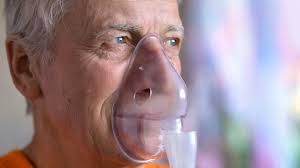 This report details the clinical outcomes of a large cohort of VA patients after hospitalization for a severe exacerbation of COPD. We demonstrate a significant risk of subsequent severe exacerbations and death in this population. The mortality rates described in this article are similar to those in other cohorts of unselected patients after hospitalization for COPD.- The mortality rates we found are higher than those in previous pharmacoepidemio-logic studies using large administrative databases. This discrepancy is likely due to the fact that this study examined prevalent hospitalizations for COPD, whereas other studies focused on incident (that is, first time) hospitalizations for COPD.
This report details the clinical outcomes of a large cohort of VA patients after hospitalization for a severe exacerbation of COPD. We demonstrate a significant risk of subsequent severe exacerbations and death in this population. The mortality rates described in this article are similar to those in other cohorts of unselected patients after hospitalization for COPD.- The mortality rates we found are higher than those in previous pharmacoepidemio-logic studies using large administrative databases. This discrepancy is likely due to the fact that this study examined prevalent hospitalizations for COPD, whereas other studies focused on incident (that is, first time) hospitalizations for COPD.
This is consistent with our observation that patients without a history of hospitalization for COPD have better outcomes than those who do.
Significant findings in this study include the fact that increased age and prior hospitalizations are independent predictors of future hospitalization and death. COPD-related hospitalizations were consistently more important predictors of subsequent outcome than non-COPD hospitalizations.



 COPD is a major global public health problem.
COPD is a major global public health problem.